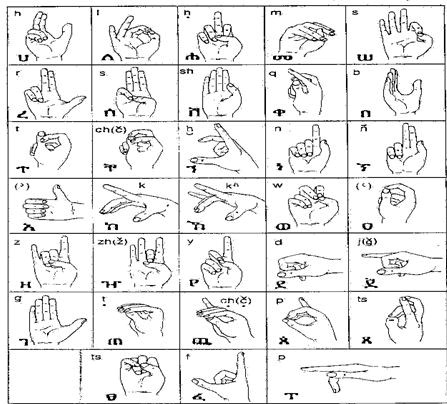
Deaf and hearing-impaired persons around the world face a number of challenges and difficulties in their day to day activities. Ranging from accessing education and healthcare services as well as employment opportunities, the needs of this segment of the society are left unmet or overlooked in most cases.
The case is not different in Ethiopia, Despite international and regional conventions and national laws that are devised with the aim of protecting the rights of people with disabilities, including the deaf and hearing-impaired persons, many barriers still exist that prevent them from fully participating in society.
One of the major obstacles facing deaf individuals and hearing-impaired persons in Ethiopia is the lack of access to education.
According to a report by Human Rights Watch, only a small percentage of deaf children have access to quality education, with many being excluded from mainstream schools due to a lack of resources and trained teachers who can communicate at the desired level using sign language. This leaves many children with the said problem without the opportunity to learn and develop essential skills that are critical in the current and their desired future lives.
In addition to limited educational opportunities, deaf individuals also struggle to find employment due to discrimination and misconceptions about their abilities. Many employers are hesitant to hire deaf and hearing-impaired individuals, believing that they will not be able to perform their duties effectively. This, in turn, perpetuates a cycle of poverty and exclusion for many members of the deaf community.
Furthermore, there is a lack of support services for deaf individuals in the country. Access to healthcare, social services, and legal assistance is often limited or non-existent for those who are deaf. This leaves them more vulnerable to actively and fully participate in society.
Despite these challenges, there are organizations and individuals who are working tirelessly to improve the lives of the deaf and hearing-impaired persons in Ethiopia. The Ethiopian National Association of the Deaf (ENAD) is one such organization that is dedicated to promoting the rights and well-being of the deaf community. The organization provides advocacy, support services, and works towards creating more inclusive policies that benefit all members of society.
It is crucial for the government and other stakeholders in Ethiopia to prioritize the needs of the deaf and hearing-impaired persons by investing in education, creating employment opportunities, and arranging support services. By doing so, it is possible to break down barriers, change the attitude of the community and create a more inclusive society where all individuals with some kind of disabilities have equal access to opportunities.
As we continue to strive for equality and inclusion for all members of society, it is important that we recognize and support the unique needs of the deaf community in Ethiopia. Only through collective efforts can we create a more just and equitable society for all.
Recently, a forum that discusses issues that deaf and hearing-impaired persons face and find solutions was conducted.
In an exclusive interview with The Ethiopian Herald President of the Addis Ababa Disabilities Association Geletaw Mulu, highlighted the numerous challenges faced by the deaf and hearing-impaired persons in Addis Ababa, including social, economic, and political issues. The objective of the discussion was to identify and differentiate these problems, gather input, and find solutions.
The Association has established close relationships with various government sectors to collaborate on disability-related issues. They have entered into different agreements and actively engage in panel discussions to advocate for inclusiveness of people with disabilities. In cases of discrimination, policy gaps, or systemic issues, the association addresses the problems by engaging with the relevant parties for resolution.
Geletaw emphasized that the responsibility for unimplemented policies and laws that are related to people with disabilities lies on the government. Amending, introducing and effectively implementing new policies, is the responsibility of both federal and regional government bodies, as well as the judicial process.
One of the major challenges faced by the deaf community is communication barriers with hearing individuals, as most people are unfamiliar with sign language, the visual gestural language that serves as the primary means of communication for deaf people. This hindrance affects deaf people’s access to various services including healthcare, employment opportunities, and particularly access to education.
Geletaw also stressed the difficulty in teaching deaf individuals in sign language, especially in rural and countryside areas. As to him, arresting the problems faced by the deaf community requires collaboration from the government, pertinent bodies and all stakeholders. In similar manner, service rendering organizations should give due emphasis to the problem and must ensure inclusivity in their services for all types of disabilities.
Yemeserach Gebre, a deaf individual, shared her personal experience of facing communication difficulties, especially when interacting with hearing individuals. She recounted the unfortunate court case where a lack of availability of sign language interpreter hindered her ability to effectively communicate and present her case
As a result, she lost the case, which resulted in a negative impact on her psychological well-being.
Yemeserach emphasized that deafness does not equate to inability, and deaf individuals possess the knowledge and skills that are necessary to participate in various sectors. The only request they have is the availability of sign language interpreters in all service sectors.
According to studies, in Ethiopia there are more than five million deaf and hearing-impaired people. Thus, bridging the communication gap and lessening the burden of these segments of the society through devising workable mechanisms is imperative.
BY EYUEL KIFLU
THE ETHIOPIAN HERALD THURSDAY 11 JANUARY 2024





